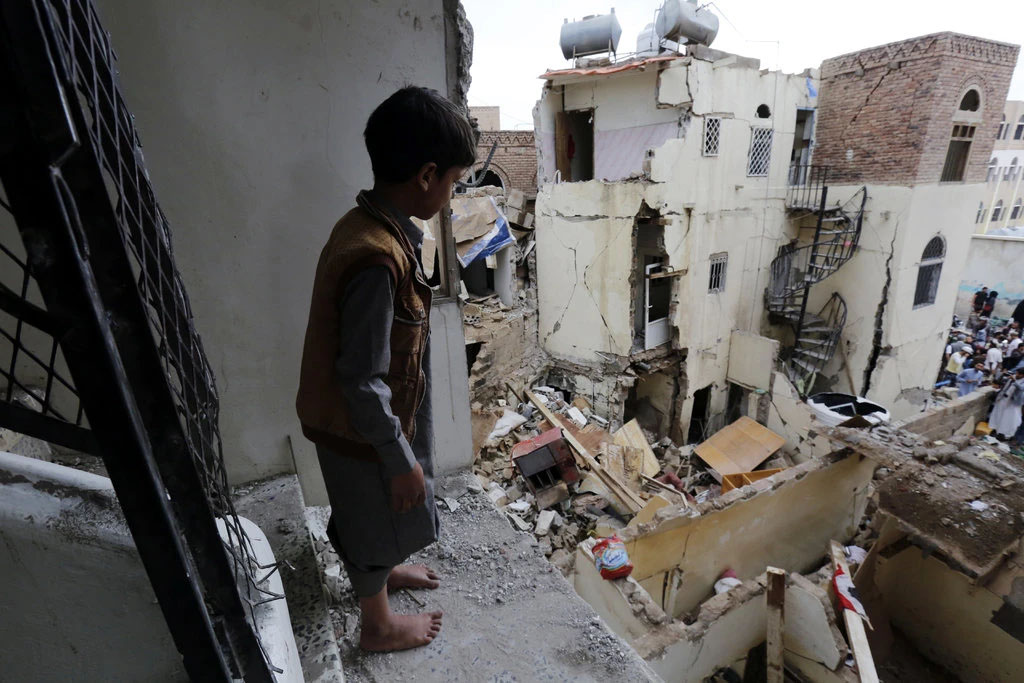During the first month of the truce, Yemen witnessed more than a 50% decrease in civilian casualties.
Qatar Charity has joined global humanitarian organisations in calling for the extension of the UN-led Yemen truce, which expires on Tuesday.
“Humanitarian organisations in Yemen urge all parties to the conflict to adhere to and extend the agreement to protect civilians across the country and allow them to rebuild and recover their lives,” read a joint statement, signed by 30 entities on Monday.
Oxfam, the Norwegian Refugee Council, Marib Girls Foundation, and the Afaq Shbabia Foundation were among the signatories.
The organisations said the truce over the past four months has allowed Yemeni civilians to experience “the longest period of calm” since the conflict began more than seven years ago. It also noted a significant drop in civilian casualties since it came into effect on 2 April.
The truce was initially scheduled to expire after two months before it was later extended in June for an additional two months.
Since 2015, Yemen has been a battleground between Iran-backed Houthi rebels and the Saudi-led coalition , which backs the internationally-recognised government.
Qatar has long called for a peaceful and political resolution to the ongoing war in Yemen, as well as an inclusive dialogue between all warring parties.
“A renewed truce would also allow more time to begin urgently needed clearance of landmines and unexploded ordnance from which people across the country remain at risk,” said the humanitarian organisation.
According to Save the Children, January was the deadliest month in Yemen since 2018, where one civilian was killed or injured every hour. This came during a flare up between Houthi rebels and the Saudi-led coalition, after the former led attacks on several UAE sites.
During the first month of the truce, Yemen witnessed more than a 50% decrease in civilian casualties, per a report by the Norwegian Refugee council.
“We urge all parties to the conflict to extend the truce for a longer term of six months or more, adhere to its terms, and uphold their obligations under international law to protect civilians and deliver on all elements of the agreement, including the reopening of roads in Taiz,” said the humanitarian entities.
“We cannot afford to lose this progress now.”
Return of flights and fuel shipments
The ceasefire included the establishment of two weekly commercial flights between Sanaa, Amman, and Cairo. The joint statement noted that the truce enabled more than 8,000 Yemenis to receive medical care, study abroad, and reunite with their loved ones for the first time.
Additionally, one provision of the ceasefire allowed 18 fuel vessels to enter the Houthi-controlled port of Hodeida.
“In the past four months of the truce, more fuel ships have entered Hodeida port than in the whole year of 2021, allowing hospitals and businesses greater access to fuel, helping to maintain proper functionality of and access to public services,” added the statement.
The rights organisations warned that failure to extend the armistice would reverse all progress witnessed since it came into effect. The lives of civilians have also been under threat despite the lull in fighting, with violations being recorded in various areas.
“[An extension] would enable all parties to invest more in helping people overcome ongoing economic deterioration and soaring prices which further restrict people from accessing food, as well as agreeing on effective mechanisms to pay salaries,” read the statement.
The war in Yemen has created the world’s worst humanitarian crisis, where more than 14 million people – 80% of the population – are in acute need of humanitarian assistance. More than three million people have also been displaced.
The situation would further deteriorate in the absence of a peaceful resolution.
“We, the undersigned agencies, urge all parties to the conflict to adhere to and extend the truce agreement…the people of Yemen deserve nothing less.”







